Are you considering a Patterdale Terrier as your next furry companion? If so, you are in for a treat! These energetic and adventurous dogs are a great choice for individuals or families who are active and love spending time outdoors. Originally bred in the Lake District of England for hunting small game, the Patterdale Terrier is a tenacious and determined breed that will keep you on your toes. With their loyal and affectionate personalities, Patterdale Terriers make wonderful pets for the right owner. In this article, we will explore the characteristics and needs of this breed to help you determine if a Patterdale Terrier is the right fit for you.
Breed Category: Terrier
Country of Origin: United Kingdom
Average Size:25-38 cm
Average Weight:5-7 kg
Average Life Span: 12-15 years
Grooming Requirements: Low
Exercise Requirements:High
History and Origin
The Patterdale Terrier is a small, sturdy breed of dog that originated in the Lake District of Northern England. The breed was developed in the 1960s by a man named Cyril Breay, who wanted to create a dog that was both a good working terrier and a loyal companion. Breay crossed a number of different terrier breeds, including the Border Terrier, the Lakeland Terrier, and the Fell Terrier, to create the Patterdale Terrier.
The Patterdale Terrier was originally bred for hunting small game, such as rabbits and rats. The breed is known for its tenacity and courage, and is often used for hunting in packs. Patterdale Terriers are also popular as pets, due to their loyal and affectionate nature. They are intelligent and easy to train, and make excellent watchdogs.
The Patterdale Terrier is a relatively new breed, and is not recognized by the Kennel Club in the UK. However, the breed is recognized by a number of other organizations, including the United Kennel Club and the American Kennel Club. The Patterdale Terrier is also recognized as a breed by the International Canine Federation.
The Patterdale Terrier is a small dog, standing between 10 and 15 inches tall at the shoulder. The breed is muscular and athletic, with a short, dense coat that comes in a variety of colors, including black, brown, and red. Patterdale Terriers have a distinctive, wedge-shaped head and a strong jaw, which makes them excellent at catching and holding prey.
The Patterdale Terrier is a hardy breed, and is generally healthy and long-lived. However, like all breeds, they are prone to certain health problems, including hip dysplasia and eye problems. It is important to choose a reputable breeder when looking for a Patterdale Terrier, and to ensure that the dog has been health tested.
In conclusion, the Patterdale Terrier is a fascinating breed with a rich history and a bright future. Whether you are looking for a working terrier or a loyal companion, the Patterdale Terrier is an excellent choice. With their intelligence, courage, and affectionate nature, these dogs are sure to win your heart.
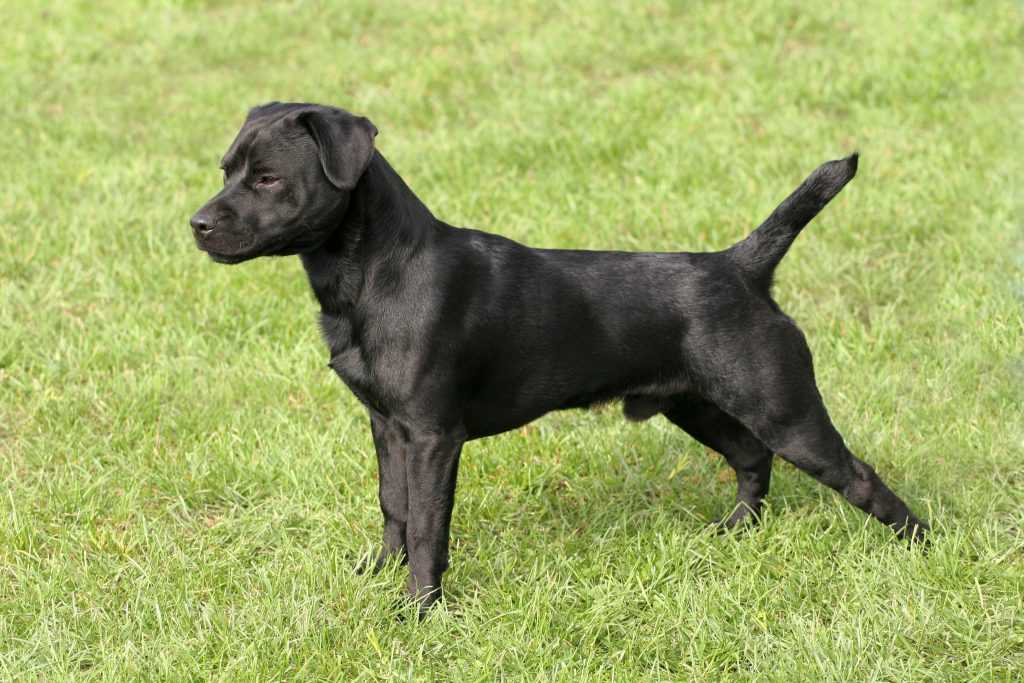
Size and Breed Category
The Patterdale Terrier is a small breed of dog that originated in the Lake District of Northern England. They are classified as a type of terrier and are known for their tenacity and courage. Patterdale Terriers typically weigh between 5-7 kg and stand at a height of 25-38 cm at the shoulder. They have a short, dense coat that can come in a variety of colours including black, brown, and red. Their ears are small and folded over, and their tails are typically docked. Patterdale Terriers are highly energetic and require plenty of exercise and mental stimulation to keep them happy and healthy. They are also known for their loyalty and make excellent companions for active individuals or families.
In terms of breed category, the Patterdale Terrier is classified as a working terrier. This means that they were originally bred for a specific purpose, which in this case was to hunt and kill vermin such as rats and foxes. Patterdale Terriers are highly skilled at this task and are known for their fearlessness and determination. They are also used for other types of work such as search and rescue, and as therapy dogs. Despite their small size, Patterdale Terriers are tough and resilient, and are able to work in a variety of environments. They are also highly trainable and respond well to positive reinforcement training methods. Overall, the Patterdale Terrier is a versatile and hardworking breed that is well-suited to a variety of tasks.
Fur Length and Colour
The fur of a Patterdale Terrier is typically short and dense, providing excellent protection against the elements. The fur is usually black, but can also be liver, red, or black and tan. The coat is easy to maintain and requires minimal grooming, making it a popular choice for those who want a low-maintenance pet. The fur is also water-resistant, which is useful for dogs that enjoy swimming or playing in the rain. Overall, the fur of a Patterdale Terrier is practical and functional, providing both protection and style.
The colour of a Patterdale Terrier’s fur can vary depending on the individual dog. Some dogs have a solid black coat, while others have liver or red fur. Some dogs have a black and tan coat, with black fur on their back and tan fur on their legs and face. The colour of the fur can also change as the dog ages, with some dogs developing more white or grey hairs as they get older. Regardless of the colour, the fur of a Patterdale Terrier is always sleek and shiny, giving the dog a healthy and vibrant appearance. Overall, the colour of a Patterdale Terrier’s fur is just one of the many unique characteristics that make this breed so special.

Termperament and Trainability
Patterdale Terriers are known for their high energy levels and strong-willed personalities. They are a breed that requires a lot of exercise and mental stimulation to keep them happy and healthy. Due to their tenacious nature, they can be difficult to train and may require a firm and consistent approach. However, with the right training and socialization, Patterdale Terriers can make excellent companions and working dogs. They are known for their loyalty and bravery, making them a popular choice for hunting and other outdoor activities.
When it comes to trainability, Patterdale Terriers are a breed that requires patience and persistence. They are intelligent dogs, but their independent nature can make them stubborn and difficult to train. Positive reinforcement techniques, such as rewards and praise, can be effective in motivating them to learn new commands and behaviours. However, it is important to establish clear boundaries and rules from a young age to prevent them from developing bad habits. With proper training and socialization, Patterdale Terriers can be well-behaved and obedient pets that are a joy to be around.
Known Health Conditions
Patterdale Terriers are prone to certain health conditions that owners should be aware of. One of the most common issues is hip dysplasia, which is a genetic condition that affects the hip joint. This can cause pain, lameness, and arthritis in the affected joint. Patterdale Terriers may also develop patellar luxation, which is when the kneecap dislocates from its normal position. This can cause pain and difficulty walking, and may require surgery to correct. Additionally, Patterdale Terriers may be prone to eye problems such as cataracts and progressive retinal atrophy, which can lead to blindness. It is important for owners to have their Patterdale Terriers regularly checked by a veterinarian to catch any potential health issues early.
Another health condition that Patterdale Terriers may be prone to is epilepsy. This neurological disorder can cause seizures, which can range from mild to severe. While there is no cure for epilepsy, medication can help manage the condition and reduce the frequency and severity of seizures. Patterdale Terriers may also be at risk for allergies, which can cause skin irritation, itching, and hair loss. Allergies can be caused by a variety of factors, including food, pollen, and dust mites. Treatment may involve identifying and avoiding the allergen, as well as medication to manage symptoms. As with any breed, it is important for Patterdale Terrier owners to be aware of potential health issues and to provide their dogs with regular veterinary care.
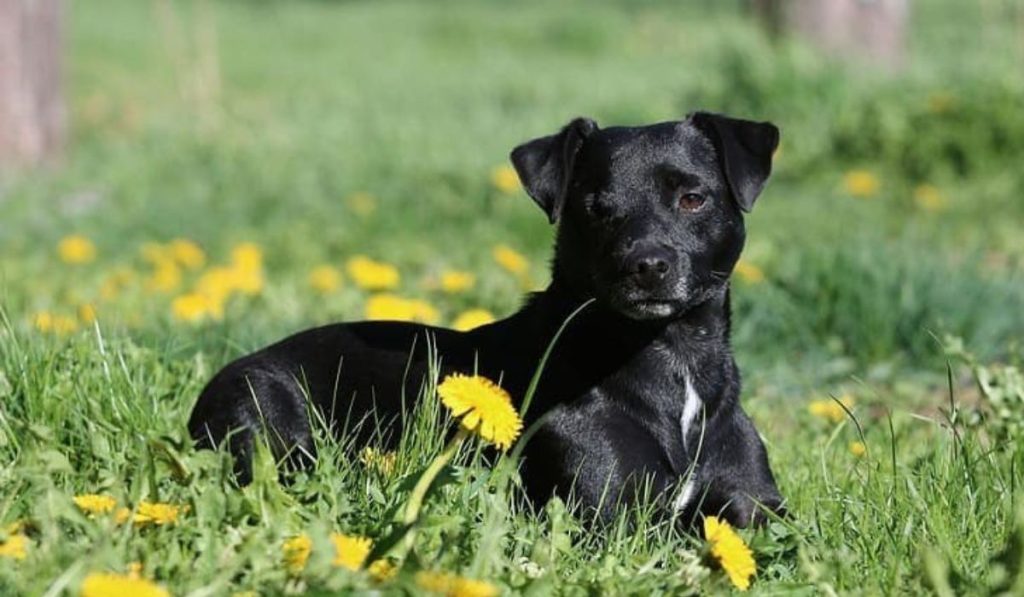
Openness to Strangers
Patterdale Terriers are known for their friendly and sociable nature towards strangers. They are always eager to meet new people and make new friends. This breed is highly adaptable and can easily adjust to new environments and situations. They are not shy or timid and will approach strangers with confidence and curiosity. Patterdale Terriers are also very loyal and protective of their owners, which makes them excellent watchdogs. They will bark to alert their owners of any potential danger, but they are not aggressive towards strangers unless they sense a threat. Overall, Patterdale Terriers are a friendly and welcoming breed that enjoys meeting new people.
Patterdale Terriers are very outgoing and love to be around people. They are not the type of dog that will hide or run away when they see a stranger. Instead, they will approach them with enthusiasm and wag their tails in excitement. This breed is also very playful and energetic, which makes them great companions for children and adults alike. They love to play fetch, go for walks, and explore their surroundings. Patterdale Terriers are also very intelligent and can be trained to do a variety of tasks, including obedience training and agility courses. They are a highly adaptable breed that can thrive in both urban and rural environments. Overall, Patterdale Terriers are a friendly and outgoing breed that loves to be around people and make new friends.
Playfulness Level
The Patterdale Terrier is a highly energetic and playful breed of dog. They are known for their love of play and their ability to keep their owners entertained for hours on end. Whether it’s playing fetch, chasing after a ball, or simply running around in circles, these dogs are always up for a good time. They are also very intelligent and quick to learn new tricks, which makes them great candidates for agility training and other dog sports. Overall, the Patterdale Terrier is a fun-loving and lively breed that is sure to bring a smile to anyone’s face.
Despite their small size, Patterdale Terriers have a big personality and a lot of energy to burn. They are always on the go and love to explore their surroundings, which can sometimes get them into trouble if they are not properly trained and socialized. However, with the right guidance and plenty of exercise, these dogs can make wonderful companions for active families and individuals. They are also very loyal and affectionate towards their owners, which makes them great pets for those who are looking for a furry friend to share their adventures with. Overall, the Patterdale Terrier is a playful and spirited breed that is sure to bring joy and excitement to any household.
Suitability as a Pet for Children
Patterdale Terriers have a lively and energetic personality, making them a great choice for children who enjoy an active lifestyle. They are highly intelligent and respond well to training, which can make them a fun and rewarding pet for kids to work with. Their small size and low-maintenance coat also make them a practical choice for families with limited space or time for grooming. However, their high energy levels and strong prey drive mean that they may not be suitable for households with other small pets, such as cats or rabbits.
Exercise Needs
Patterdale Terriers require a significant amount of exercise to maintain their physical and mental health. As an active breed, they need at least an hour of exercise every day, which can be achieved through a combination of walks, runs, and playtime. It is important to note that Patterdale Terriers have a high prey drive, so they should always be kept on a leash or in a secure area to prevent them from chasing after small animals.
In addition to physical exercise, Patterdale Terriers also benefit from mental stimulation. They are intelligent dogs that enjoy learning new tricks and participating in activities such as agility training. Puzzle toys and interactive games can also provide mental stimulation and prevent boredom. It is important to provide a variety of activities to keep Patterdale Terriers engaged and prevent destructive behavior.
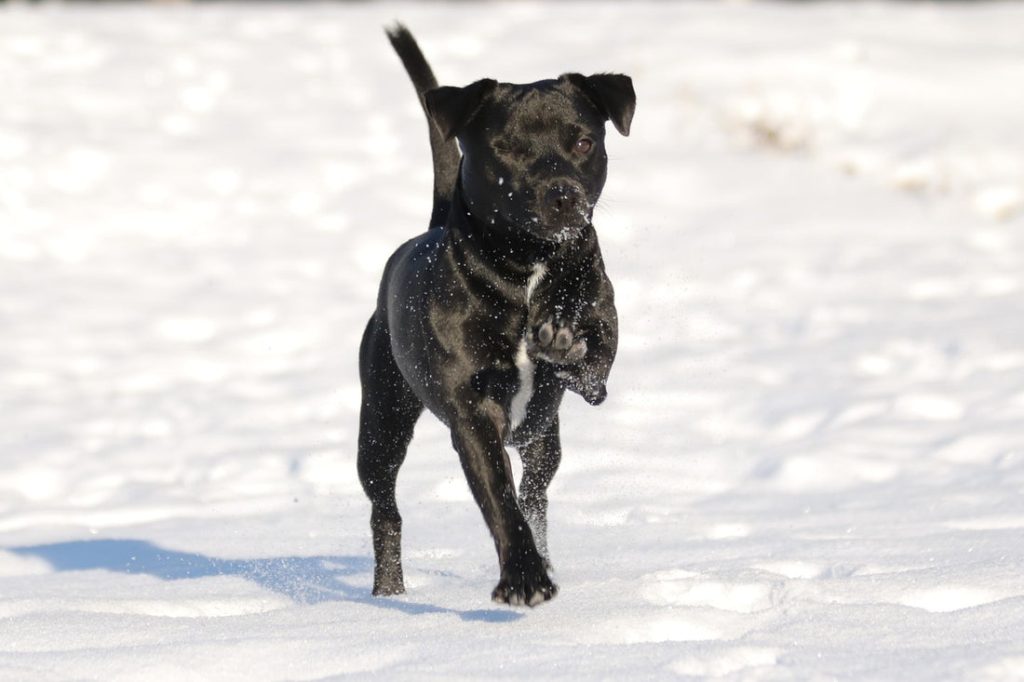
Suitability for a Multi-Pet Family
Patterdale Terriers have a reputation for being territorial and possessive, which can sometimes lead to conflicts with other pets in the household. However, with proper socialization and training, they can learn to coexist peacefully with other animals. It is important to introduce them to other pets gradually and under supervision, and to provide them with plenty of positive reinforcement for good behavior. Additionally, Patterdale Terriers may be more likely to get along with other pets if they are raised together from a young age.
Housing Requirements
#ERROR!
Summary
Patterdale Terriers are a popular choice for pet owners due to their energetic and playful nature. They are known for their loyalty and affection towards their owners, making them great companions. They require regular exercise and mental stimulation to keep them happy and healthy. Patterdale Terriers are also highly intelligent and trainable, making them suitable for owners who are willing to put in the time and effort to train them properly. Overall, Patterdale Terriers make great pets for active and dedicated owners who are looking for a loyal and loving companion.
Patterdale Terrier Dog FAQS
Patterdale Terriers are intelligent and eager to please, but can be stubborn. Consistent training and positive reinforcement is key.
Patterdale Terriers are active dogs and require a lot of exercise, so they may not be the best choice for apartment living.
Patterdale Terriers can be good with children if they are socialized properly and trained to interact with them.
Patterdale Terriers can get along with other pets if they are socialized properly and introduced slowly. However, they have a high prey drive and may not be suitable for homes with small animals such as rabbits or guinea pigs.
Patterdale Terriers are generally healthy, but can be prone to certain conditions such as hip dysplasia and patellar luxation.
Patterdale Terriers have a short, dense coat and do not shed excessively.
Patterdale Terriers have a lifespan of 12-15 years.
Patterdale Terriers are high-energy dogs and require at least 1-2 hours of exercise per day.
Patterdale Terriers should be brushed once a week and bathed every 2-3 months.
The average weight of a Patterdale Terrier is between 5-7 kg.
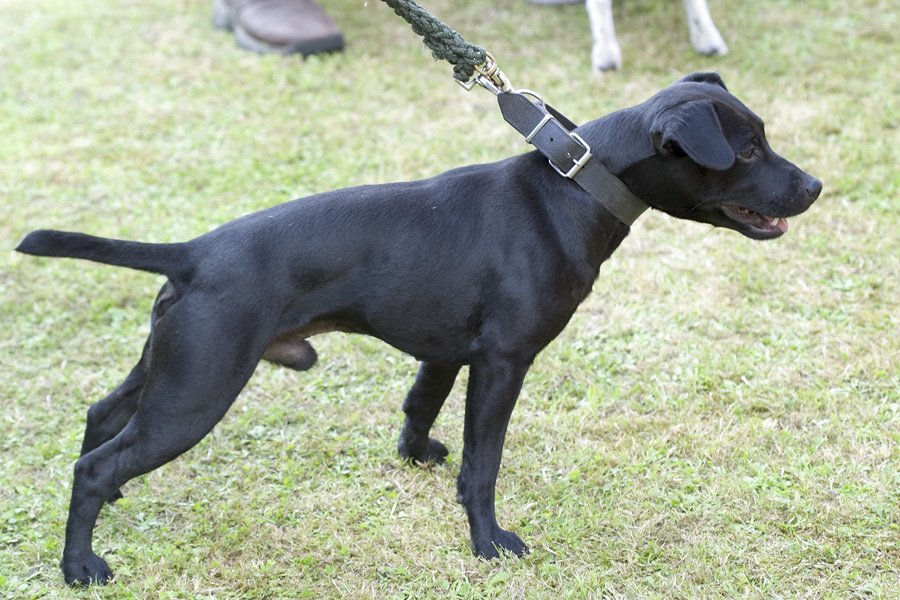
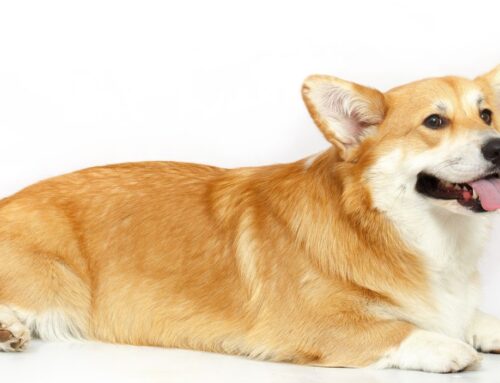
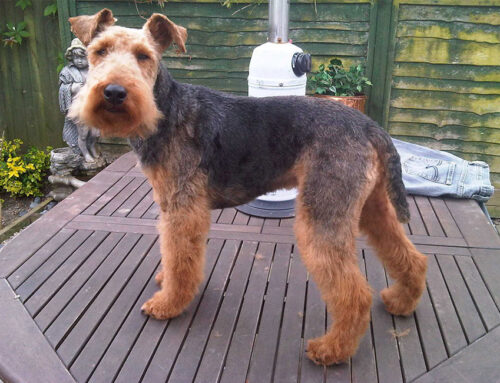

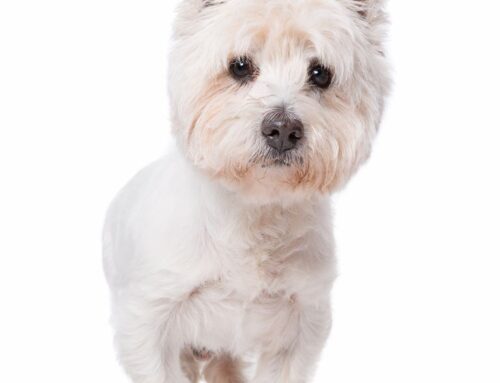
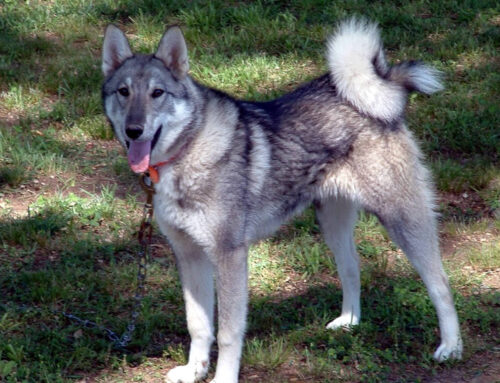
Leave A Comment